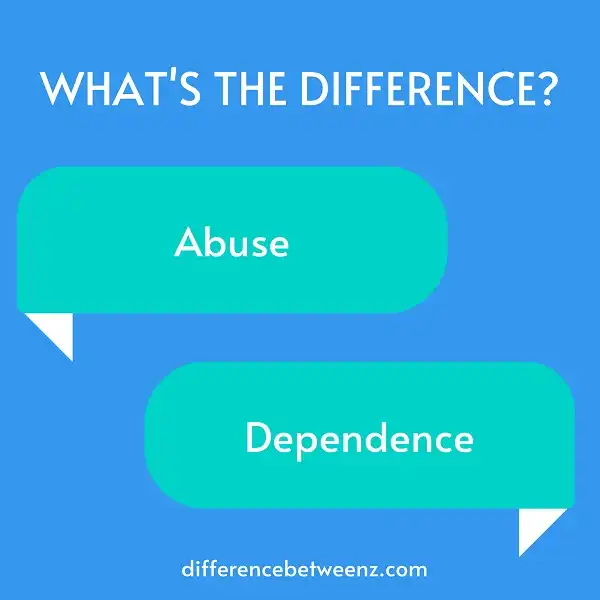Abuse of drugs and alcohol is a serious problem in the United States. Every day, people die from abusing these substances. There is a big difference between abuse and dependence, though. Abuse refers to using a substance in a way that is harmful to yourself or others. Dependence means that you need the substance to function normally. Abuse can lead to dependence, but not all cases of dependence are caused by abuse.
What is Abuse?
Abuse of substances is a serious problem that can lead to addiction and other negative consequences. Abuse is defined as the use of a substance in a harmful or hazardous way. This can include using too much of a substance, using it more often than prescribed, using it in a way that is not intended (e.g., injecting a drug instead of taking it orally), or using it for non-medical purposes (e.g., using alcohol to get drunk).
Abuse of substances can lead to addiction, which is a chronic, relapsing disease characterized by compulsive drug seeking and use despite negative consequences. If you or someone you know is struggling with abuse of substances, there are many resources available to help. Treatment options vary depending on the substance involved and the severity of the problem, but there is help available for anyone who needs it.
What is Dependence?
Dependence is a state in which an individual feels compelled to continue using a substance despite the negative consequences. Dependence can develop both physically and psychologically, and it often leads to addiction. Dependence usually develops over time, as the individual begins to build up a tolerance to the substance. This tolerance leads to the need for larger and more frequent doses in order to achieve the same effect.
As dependence grows, the individual may start to experience withdrawal symptoms when they try to quit using the substance. In some cases, these withdrawal symptoms can be severe, and they may even lead to death. Dependence is a serious condition that can have devastating effects on an individual’s life. If you or someone you know is struggling with dependence, it is important to seek professional help as soon as possible.
Difference between Abuse and Dependence
Though they are often used interchangeably, there is a difference between abuse and dependence when it comes to substances. Abuse is defined as using a substance in a way that is harmful to oneself or others, such as driving while under the influence of drugs or alcohol. Dependence, on the other hand, is defined as being unable to stop using a substance even when it causes negative consequences.
Many people who abuse substances eventually become dependent on them, but not all people who are dependent on substances have abused them. Treatment for substance abuse and dependence often includes counseling and behavioral therapy in addition to medication.
Conclusion
The main difference between abuse and dependence is that abuse can be stopped, while dependence cannot. Abuse refers to the use of a substance in a way that causes harm or problems in someone’s life, while dependence is when a person becomes physically and/or psychologically addicted to a substance. When it comes to substances, there is often a lot of confusion about the difference between abuse and dependence. Many people think they are one and the same, but this isn’t always the case.


